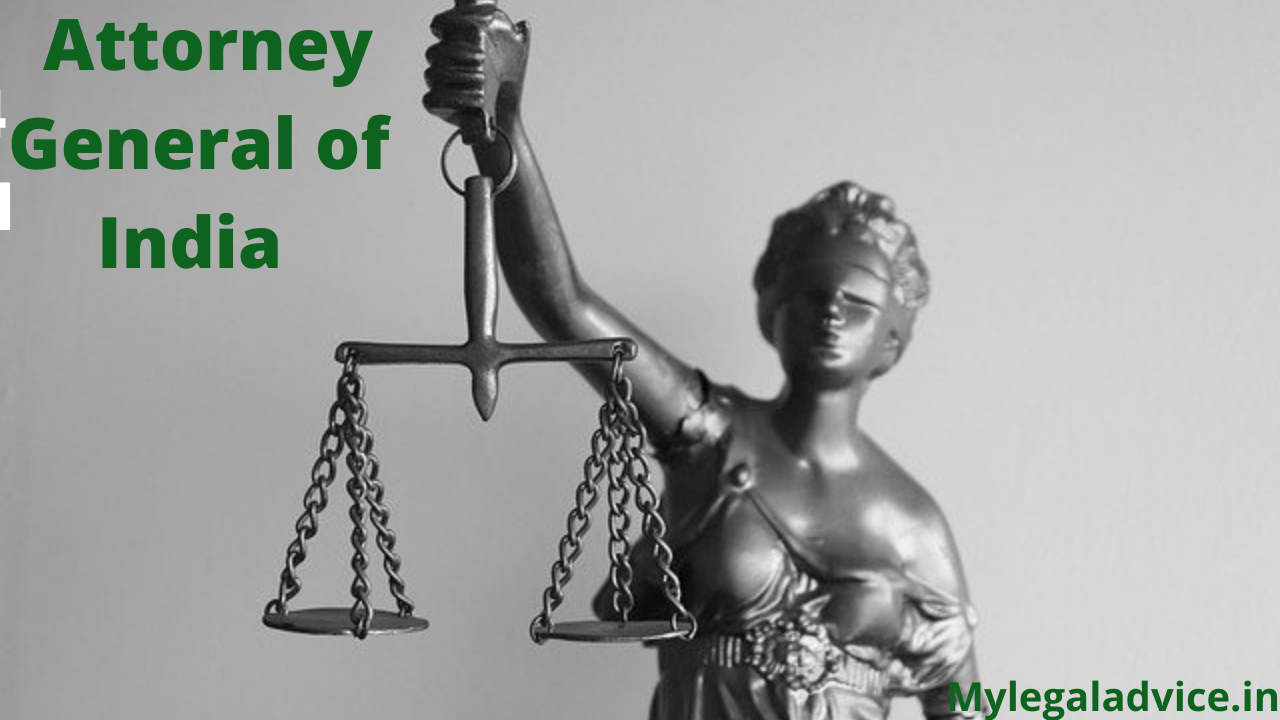What is Attorney General of India
The Attorney General for India is the indian Government’s chief legal advisor, and is its principal Advocate before the Supreme Court of India. They are appointed by the president of india on the advice of the union cabinet
under Article 76(1) of the constitution and hold office during the pleasure of the President. They must be a person qualified to be appointed as a Judge of the Supreme Court. Hence, they must have been a judge of some high court for five years or an advocate of some high court for ten years, or an eminent jurist in the opinion of the President.
The 15th and current Attorney General is KK Venugopal. He was reappointed by President ram nath kovind in 2020. He began his service on 30 June 2017.
The Attorney General of India is the highest law officer of the country and also the chief legal advisor to the government of India. The current and 15th Attorney General of India is KK Venugopal, who started his services on June 30, 2017. The post of Attorney General of India is provided under the constitution and hence is a constitutional post.
present Attorney General in India
…
List of Attorneys General for India.
| Attorney General | Term | Incumbent Prime Minister |
|---|---|---|
| K. K. Venugopal | 1 July 2017 – (incumbent) | Narendra Modi |
How is the Attorney General of India appointed
- The Attorney General of India is appointed by the President of India on the advice of the Union Cabinet of ministers.
- The person appointed must be a citizen of India.
- To be appointed as the Attorney General of India, a person must be qualified to be a Supreme Court judge, i.e. they must either be a judge of a High Court for five years or an advocate in a High Court for 10 years or an eminent jurist in the President’s opinion.
What are the duties of the Attorney General of India
- Being the highest law officer of the country, it is the duty of the attorney general to advise the government on legal matters that are referred to him by the president.
- He is also duty-bound to undertake any responsibilities of duties of legal character that are assigned to him by the president.
- Similarly, he is also bound to perform any other functions conferred upon him by the constitution.
- Among the duties conferred upon him by the president are, to appear on behalf of the central government Supreme Court, to represent the central government in any reference made to the Supreme Court under article 143 by the president, and to appear in any High Court for a case where the Government of India is concerned.
Special rights enjoyed by the Attorney General of India
- The attorney general enjoys the right of audience in any court of the country when concerned with his duties.
- He further enjoys all the immunities and special privileges available to an MP.
- He has the right to participate in the proceedings of both the houses without the right to vote and can be designated as a member.
Powers, duties and functions
The Attorney General is necessary for advising the Government of india on legal matters referred to them. They also perform other legal duties assigned to them by the President. The Attorney General has the right of audience in all Courts in India as well as the right to participate in the proceedings of the parliament, though not to vote. The Attorney General appears on behalf of Government of india in all cases (including suits, appeals and other proceedings) in the Supreme Court in which Government of India is concerned. They also represent the Government of India in any reference made by the President to the Supreme Court under Article 143 of the constitution
Like the Attorneys General of the United States the Attorney General of India has executive authority. Those functions are performed by the law minister of india Also the AG is not a government servant and is not debarred from private legal practice.
The Attorney General can accept briefs but cannot appear against the Government. They cannot defend an accused in the criminal proceedings and accept the directorship of a company without the permission of the Government.
The Attorney General is assisted by a solicitor general and Additional Solicitors General.The Attorney General is to be consulted only in legal matters of real importance and only after the ministry of law has been consulted. All references to the Attorney General are made by the Law Ministry.
मेरा नाम दीपेन्द्र सिंह है पेशे से मे एक वकील हू| MYLEGALADVICE ब्लॉग का लेखक हू यहा से आप सभी प्रकार की कानून से संबंद रखने वाली हर जानकारी देता रहूँगा जो आपके लिए हमेशा उपयोगी रहेगी | इसी अनुभव के साथ जरूरत मंद लोगों कानूनी सलाह देने के लिए यक छोटा स प्रयास किया है आशा करता हू की मेरे द्वारा दी गई जानकारी आपके लिए उपयोगी रहे |यदि आपको कोई कानूनी सलाह या जानकारी लेनी हो तो नीचे दिए गए संपर्क सूत्रों के माध्यम से हमसे संपर्क कर सकते है |
